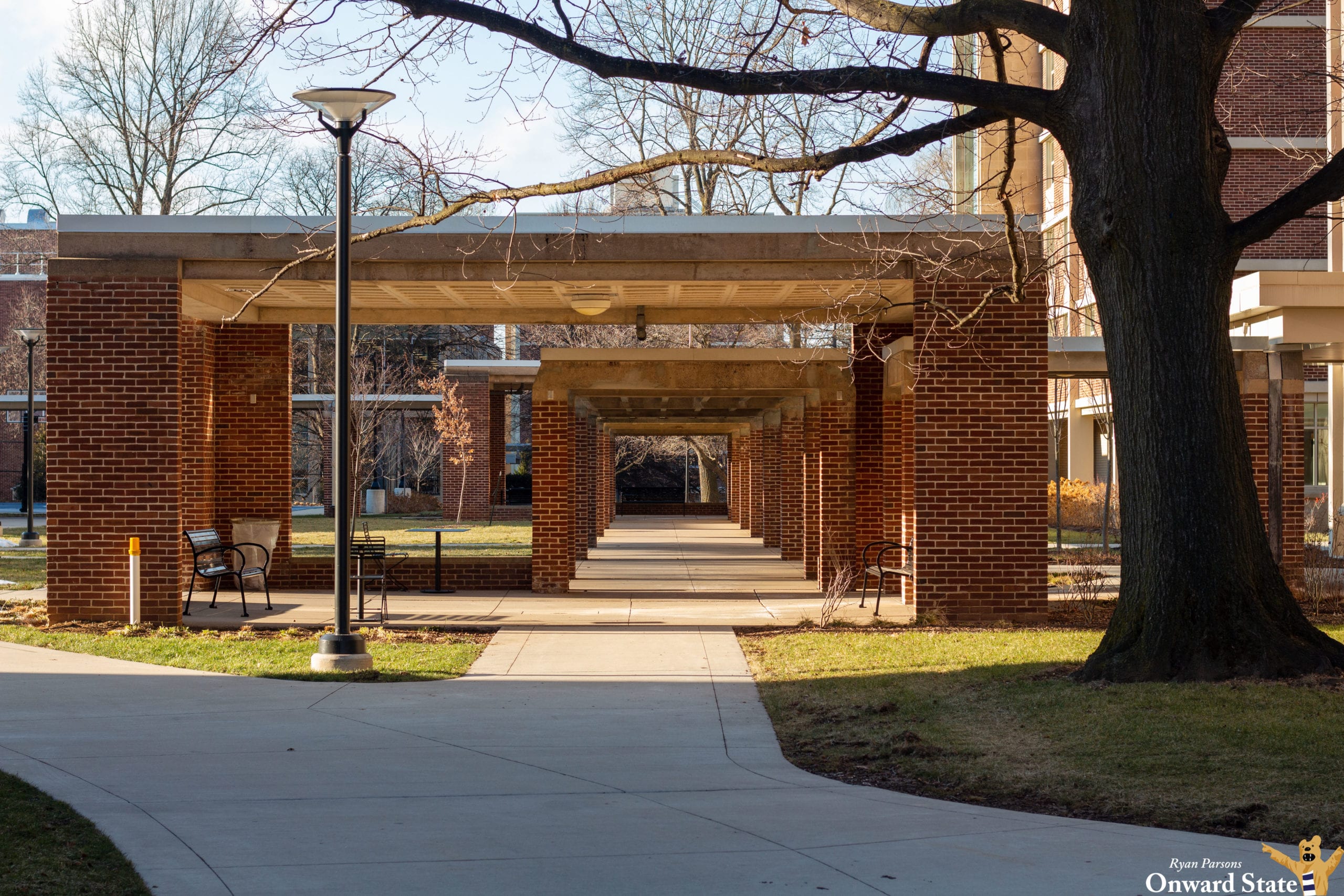University health officials on Wednesday advised students living in Hastings Hall and Stone Hall to get tested for COVID-19 after “several” positive tests were reported among residents of the two East Halls dorms.
“We have had a few students from each of these residence halls test positive this week,” Kelly Wolgast, director of Penn State’s COVID-19 Operations Control Center, said in a statement. “To help us understand if the virus has spread further and to catch and isolate any additional positive cases, we are asking all students living in these locations to get tested for COVID-19, unless they have tested positive in the previous 90 days.”
The university did not specify how many students in those residence halls tested positive and said the advisory for other residents to be tested was made “out of an abundance of caution.”
Over the past week the University Park campus has seen a spike in student cases, with 126 positives and a 2.4% positivity rate from March 10-16, according to Penn State’s COVID-19 dashboard. For the previous seven days, there were 74 student cases and 1.5% positivity rate.
On Monday, 41 new student positives were reported, the highest single day total since students returned to campus in February.
That increase has been reflected in Centre County’s totals this week. New positives in the county reported by the Pennsylvania Department of Health on Wednesday (78) and Thursday (102) were the highest increases since early February.
Hastings and Stone Hall students were encouraged to go for walk-up testing on Wednesday and Thursday at Pegula Ice Arena, where rapid tests are administered to provide immediate results. If a rapid test indicates a positive result, students will take a PCR test to confirm and be directed to isolation. The university also will initiate contact tracing.
“So, even if you are asymptomatic – and this goes for all students, not only those in Hastings and Stone – walk-up testing provides convenient reassurance that you are not potentially putting others at risk,” Wolgast said. “It’s a judgment-free zone – you’re not asked where you’ve been or what you’ve been doing – you’re just taking the responsible step of getting tested.”
Students who receive a negative on the PCR will be given information about leaving isolation, while those who test positive will complete a 10-day isolation period that includes university support services.
As of the most recent update on Tuesday, 80 students were in isolation and 42 in quarantine.
“The virus is still prevalent almost everywhere, so we all must continue following public health guidelines to help reduce the spread on our campuses,” Wolgast said.. “It’s imperative that we keep masking, physically distancing from others and avoiding large gatherings. Please, just stay with your small pod of friends this spring. Answer your phone when our contact tracers call you. The next few weeks are critical to continuing our on-campus activities through the end of the semester.”



